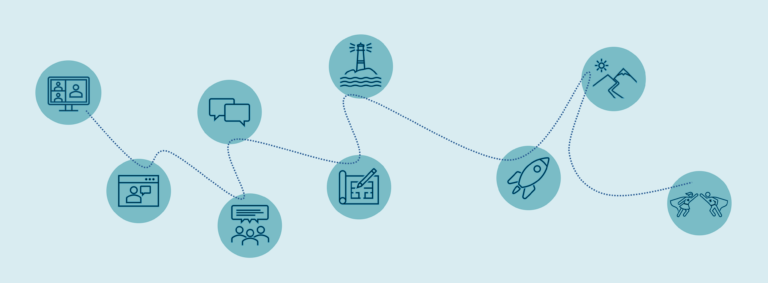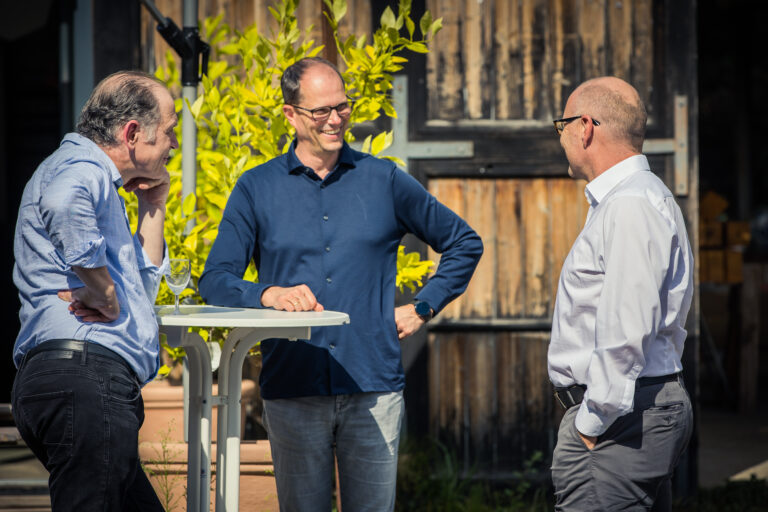Managers go through a process of development
In the future, managers will be exposed to constant changes that require leadership action in complex, unpredictable and dynamic situations. So it’s obvious that leadership development needs to change. Today’s reality, on the other hand, still looks different: On the one hand, most development programs are still conducted, as Prof. Dr. John Erpenbeck notes, according to the principle of “instructional didactics” without taking into account today’s neuropsychological insights into learning. On the other hand, almost all executive training programs still follow a standardized (corporate) competency model that all executives are expected to adhere to and are measured against. True to the motto:” Those who don’t fit in will be made to fit in.”
We contend that nextleader development must be personalized, self-organized, and emotionally anchored to ensure sustainable competency development.
- personalized
Future management training must be individualized and not based on the “watering can principle”. In this context, we are not advocating the abolition of all competency models – but rather a change of perspective. The employee must be the focus, then the competencies to be developed – not the other way around. Personalized means that the nextleader and those directly responsible are enabled to correctly assess their own (leadership) potential. The orientation of future development measures should then be based on the strengths and minimums factor. Strength factor means: Which leadership talents – and strengths do I already have and should be developed? Which topics move or inspire me and where would I like to grow further? Minimum factor means: What characteristic will prevent me from leading effectively in the future? What is my personal “bottleneck”?
- self-organized
The self-organization seamlessly follows on from the potential analysis and takes the nextleader into self-responsibility. He defines his learning and development goals and selects suitable content, methods and reflection processes for himself. HR managers play the role of “learning enablers”, creating the framework for individual learning processes. This includes providing a learning arrangement that includes access to knowledge, challenging projects (“on the job”), and exchange opportunities with mentors or learning partners.
- Emotionally anchored
Prof. Dr. Gerald Hüther, currently the most renowned brain researcher, coined the phrase: “Real learning only happens with enthusiasm”. We all know it: Who remembers the different elements of the periodic table in chemistry class? But one lecture, which we followed with enthusiasm, will remain in our memories for a long time. However, effective learning processes result not only from purely positive emotions, but also from learning situations in which difficulties and contradictions are experienced and overcome. The learner is taken out of his usual comfort zone, so to speak. In this context, it is important that the situations and emotions experienced are accompanied and continuously reflected upon. Feedback from outside – be it from one’s own employees, colleagues, superiors or from an external coach – is elementary in order to assess one’s own (leadership) actions and to place them in the personal context.










